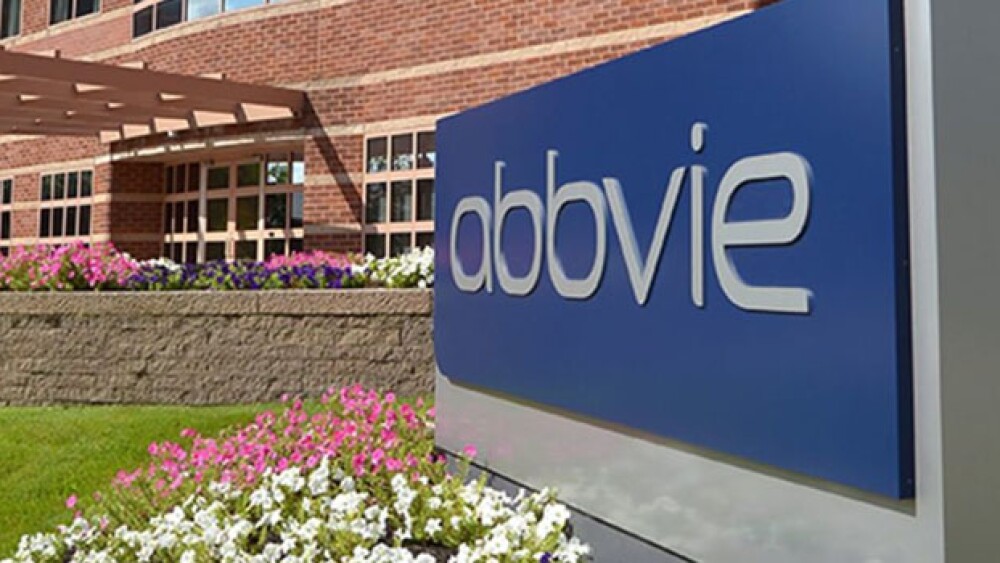AbbVie announced that its Phase III induction study, U-ACHIEVE, of Rinvoq (upadacitinib) in moderate to severe ulcerative colitis, hit the primary endpoint of clinical remission at week 8.
AbbVie announced that its Phase III induction study, U-ACHIEVE, of Rinvoq (upadacitinib) in moderate to severe ulcerative colitis, hit the primary endpoint of clinical remission at week 8. It also met all the ranked secondary endpoints.
Rinvoq is an oral, once-daily, selective and reversible JAK inhibitor. It is approved since August 2019 in adults with moderately to severely active rheumatoid arthritis. In addition to the ulcerative colitis, it is being evaluated for other immune-mediated inflammatory conditions, including atopic dermatitis, psoriatic arthritis, axial spondyloarthritis, Crohn’s disease, giant cell arteritis and Takayasu arteritis.
The U-ACHIEVE Phase IIb/III study was evaluating the efficacy and safety of the drug for induction and maintenance therapy in moderate to severe ulcerative colitis. Results from the Phase IIb part were announced in October 2018.
In today’s announcement, 26% of patients receiving Rinvoq hit clinical remission compared to 5% in the placebo group. U-ACHIEVE is the first of two Phase III induction studies.
“Despite the availability of multiple treatment options with varying mechanisms of action, many patients still do not achieve disease control,” said Michael Severino, vice chairman and president of AbbVie. “We are encouraged by these results showing upadacitinib’s potential to improve clinical, endoscopic and histologic outcomes in patients with ulcerative colitis.”
In the trial, 36% of patients receiving Rinvoq achieved endoscopic improvement at week 8 compared to 7% of placebo patients. Also, 30% of the Rinvoq patients achieved histologic-endoscopic mucosal improvement at week 8 compared to 7% of the placebo group. In addition, 73% receiving the drug achieved clinical response per the Adapted Mayo Score at week 8 compared to 27% of the placebo group, and 60% of the drug cohort experienced clinical response at week 2 compared to 27% of the placebo group.
“Ulcerative colitis is a complex disease to manage, and many patients do not achieve relief from symptoms,” said Silvio Danese, lead study investigator and head of the Inflammatory Bowel Diseases Centre at Humanitas Research Hospital, Milan, Italy. “I am excited about these positive results showing the potential of upadacitinib to alleviate symptoms and control mucosal inflammation in patients with moderate to severe ulcerative colitis.”
Ulcerative colitis is a chronic, systemic, inflammatory disease caused by inflammation of the large intestine. This results in abdominal pain, bloody diarrhea, severe bowel urgency, weight loss and fatigue.
This is particularly good news for the company, because of the pending loss of patent protection for its mega-blockbuster drug, Humira. Humira will begin facing biosimilar competition in 2023. Rinvoq, however, has a JAK class warning label regarding serious infections, malignancy and thrombosis, which has made many rheumatologists cautious about using the drug and might make its hopes of replacing the loss of Humira revenues a difficult task.
AbbVie isn’t betting everything on Rinvoq, though, and recently launched Skyrizi for psoriasis. At the JP Morgan Healthcare Conference in January 2020, Rick Gonzalez, AbbVie’s chief executive officer, projected the two drugs, Rinvoq and Skyrizi, could hit a combined $20 billion in annual sales if they pick up all the indications Humira is approved for with the possibility of atopic dermatitis on top.
In a 2019 report by the Institute for Clinical and Economic Review (ICER), the U.S.-based cost-effectiveness organization concluded that Rinvoq offered a “marginal” benefit over Humira, but had a higher price tag. They also included a clinical effectiveness and economic analysis of two other JAK inhibitors, Pfizer’s Xeljanz (tofacitinib) and Eli Lilly’s Olumiant (baricitinib).
Rinvoq’s annual list price is $59,860. The ICER report argued that Rinvoq’s value-based price benchmark is between $44,000 and $45,000 per year of treatment. They also determined that Xeljanz had a comparable net health benefit to Humira, but had no evidence to compare Olumiant to Humira.





